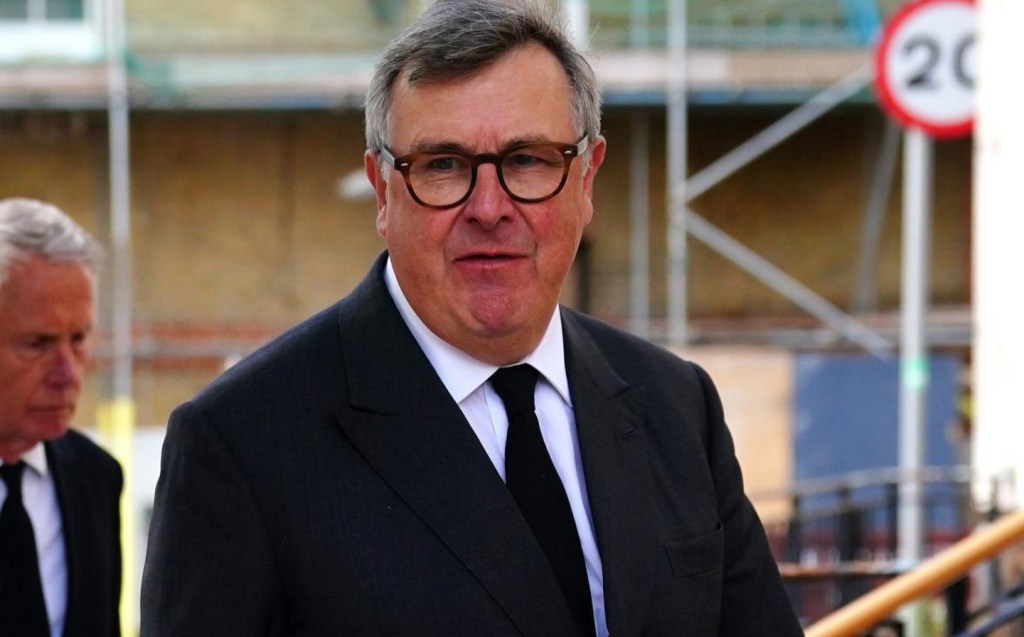Duke of Norfolk, organiser of Queen Elizabeth's funeral, gets six-month ban for using phone while driving
For Norfolk’s sake...
The Duke of Norfolk, the peer responsible for organising the funeral of Her Late Majesty Queen Elizabeth II, has been handed a six-month driving ban and ordered to pay a fine of £800 having been caught using his mobile phone while driving in London earlier this year.
At a partially in camera (closed) sitting of Lavender Hill magistrates’ court yesterday (September 27), prosecutor Jonathan Bryan told a panel of magistrates that Edward Fitzalan-Howard, the Earl Marshal, had been stopped by police after his BMW cut across the officers’ car while going through a red light in Battersea on April 7 and, when officers approached the vehicle, they found the duke speaking on his phone.
With Fitzalan-Howard already having nine penalty points for speeding on his licence after two incidents in 2019, the six additional penalty points following the latest incident meant that the duke faced an automatic driving ban if convicted, something which, he tried to argue, would cause “exceptional hardship” in light of his role in organising next year’s coronation of King Charles.

Motorists who accrue 12 or more penalty points within three years are disqualified from driving for a minimum of six months.
The duke’s solicitor, Natasha Dardashti, urged the magistrates to hear some of the evidence in private, with the defendant providing to the court details relating to the coronation in support of his argument of “exceptional hardship”.
“The application for this matter to be in camera is for reasons of national security and because details of this will be provided which have not yet been discussed with His Royal Highness, and not yet discussed with the prime minister and not yet discussed with the archbishop of Canterbury,” she said.
“It would be unacceptable for these details to be made public or made known to risk the escape of that information of a very sensitive nature.”
‘Obviously, I have got the financial means to hire a driver (but) it is almost impossible to have enough drivers to carry out this task of getting me to the right place.’
Dardashti argued that certain information should be private until after the coronation, telling magistrates: “Very few people have been made aware of the date. The more sensitive the material, the fewer people are yet to be involved in that.”
“Organisation of a national state occasion involves considerable matters of national security, not just the public and officials in this country, but world leaders attending the UK. In order to be able to properly advance this argument, it would require his grace to go into details, and to allow the press to remain will prohibit him putting forward much of the information he needs to put.”
The court agreed and heard evidence in private for 30 minutes in addition to the arguments already put forward by the duke that the loss of his licence could be “very, very serious” and led to job losses for 20-30 employees.
“Obviously, I have got the financial means to hire a driver,” said the duke, who is thought to be worth more than £100m, but added that although he could be driven from 9am to 5pm or at 4am “to get out to see the curlew or lapwing”, “it is almost impossible to have enough drivers to carry out this task of getting me to the right place.”
He said that he needed to be able to travel between his estates in Norfolk and Yorkshire, and to travel out onto the South Downs near his home at Arundel Castle, West Sussex, as part of the conservation projects with which he is involved.
The magistrates, chaired by Judith Way, however, were unmoved by the duke’s arguments.
“The hardship needs to be exceptional,” she said, “and although we find inconvenience may be caused, we don’t find it exceptional hardship.”
In addition to the six-month driving ban and fine of £800, the Earl Marshal was ordered to pay £400 in costs.
Related articles
- After reading about the Duke of Norfolk’s driving ban, you might like to read how the Duke of Marlborough was ordered to hand back his Porsche
- Last year the Duke and Duchess of Cambridge’s royal Range Rover went up for sale
- Take a look at the best luxury cars to buy in 2022
Latest articles
- F1 2025 calendar and race reports: The new Formula One season as it happens
- Seven great automotive events to visit this summer, from F1 to art and champagne
- Watch new Porsche 911 GT3 smash Nürburgring record for manual cars
- Skoda Elroq 2025 review: Czech carmaker can’t seem to miss with its electric family cars
- Five best electric cars to buy in 2025
- Should I buy a diesel car in 2025?
- Zeekr 7X AWD 2025 review: A fast, spacious and high tech premium SUV — but someone call the chassis chief
- Denza Z9GT 2025 review: Flawed but sleek 1,062bhp shooting brake from BYD’s luxury arm
- Extended test: 2024 Renault Scenic E-Tech review














